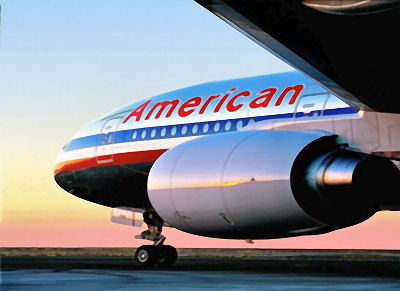Economists have begun to voice concerns that the price of gasoline, which is usually high, could damage the U.S. recovery and make the recession in Europe worse. That is probably true. An American who drives 20,000 miles a year faces paying $1,000 more for gas this year than last, based on AAA data, if he has a car that gets average gas mileage. In a state like California, where the price of a gallon of regular gas is nearly $4 a gallon, the number could be closer to $1,300. That is a lot of money for the average U.S. household with an income of slightly over $50,000 a year before taxes. Source: AMR
Source: AMR
The consumer’s gas price is only part of the problem. The costs to companies is nearly as bad. That is not evident anyplace more than in the airline industry.
The International Air Transport Association, which is as close to a formal organization as the airlines have as a spokesman, forecast that:
Improving business confidence and encouraging news from the US economy are heartening developments. But it is far too early to start predicting a soft landing for 2012. The euro zone crisis is far from over. Failure to achieve a durable solution will have dire consequences for economies around the world. And it would most certainly tip the airline industry into the red.
The price of fuel was not addressed in the analysis issued on February 1, but the sharp rise in oil and gas prices was relatively new then. And the IATA economists may have believed that a troubled global economy would keep oil demand low, and with it prices. That assumption does not take into account a growing concern because of problems with Iran and trouble in large producer Nigeria.
Oil prices rose to $141 a barrel in mid 2008. The increase crippled the airline industry and in part prompted a round of consolidation that eventually led to the marriages of United and Continental and Delta and Northwest. Even with the cost savings from these mergers, jet fuel prices, which could be nearly as high as those in 2008, cannot be offset by other savings. The industry’s bad habit of serial bankruptcies could return, and some carriers might follow American Air parent AMR into Chapter 11.
The Arab Oil Embargo of 1973 was one of the triggers of the downfall of industry leader Pan Am. It also hurt the prospects of already troubled TWA. There is a precedent for a relationship between jet fuel prices and airline collapses. Current oil prices could bring another wave of problems.
Douglas A. McIntyre
Take This Retirement Quiz To Get Matched With A Financial Advisor (Sponsored)
Take the quiz below to get matched with a financial advisor today.
Each advisor has been vetted by SmartAsset and is held to a fiduciary standard to act in your best interests.
Here’s how it works:
1. Answer SmartAsset advisor match quiz
2. Review your pre-screened matches at your leisure. Check out the advisors’ profiles.
3. Speak with advisors at no cost to you. Have an introductory call on the phone or introduction in person and choose whom to work with in the future
Take the retirement quiz right here.
Thank you for reading! Have some feedback for us?
Contact the 24/7 Wall St. editorial team.



